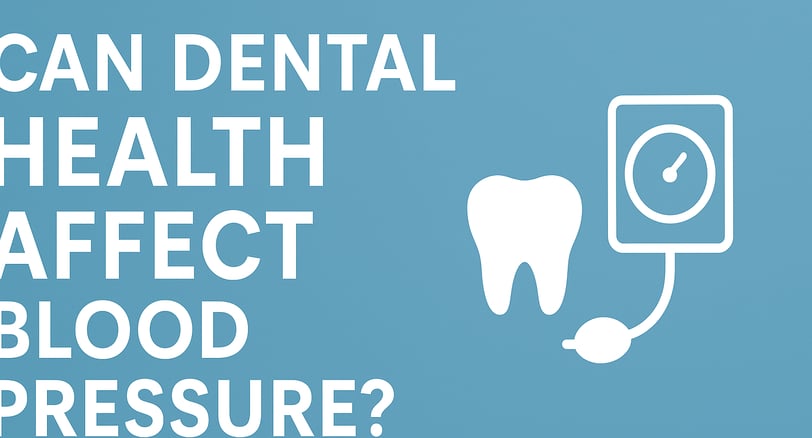Can Dental Health Affect Blood Pressure?
It might surprise you, but your mouth and your heart are more connected than you think. Over the years, researchers and dentists alike have uncovered strong links between oral health and overall health—especially when it comes to your blood pressure. So, can dental health affect blood pressure? The short answer is yes. Here’s what you need to know.
4/13/20252 min read


🩺 The Mouth-Body Connection
Your mouth is home to billions of bacteria—some good, some harmful. When oral hygiene isn’t maintained, bacteria can build up and lead to gum disease (also known as periodontal disease). This causes inflammation in the gums and, if left untreated, can lead to tooth loss and infections.
But the effects don’t stop in your mouth. The inflammation and bacteria from gum disease can enter your bloodstream and trigger systemic inflammation, which may raise your risk of high blood pressure (hypertension) and other serious conditions like heart disease and stroke.
📊 What the Science Says
Several studies have shown a link between gum disease and high blood pressure. Here are some key findings:
People with severe gum disease are more likely to have high blood pressure, even if they’re otherwise healthy.
Inflammation caused by poor oral health may make it harder to control blood pressure, even with medication.
Treating gum disease can help lower blood pressure or make blood pressure medications more effective.
A 2018 study in the Journal of Hypertension found that those with periodontitis were 20% more likely to develop high blood pressure than those with healthy gums.
😬 Signs Your Dental Health Might Be Affecting Your Body
Watch out for these red flags:
Bleeding, red, or swollen gums
Chronic bad breath
Loose teeth or receding gums
Dry mouth or a constant bad taste
Unexplained spikes in blood pressure
If you notice these symptoms—especially along with high blood pressure—it’s worth scheduling a dental check-up.
✅ How to Protect Your Teeth and Your Heart
Good oral health is more than cosmetic—it can be life-saving. Here’s how to take care of both:
Brush twice daily with fluoride toothpaste
Floss daily to remove plaque between teeth
Visit your dentist regularly (every 6 months or as recommended)
Eat a balanced diet low in sugar and rich in vitamins
Don’t smoke—it’s harmful to your gums and your cardiovascular system
Manage stress, which can affect both oral and heart health
Monitor your blood pressure regularly
🧠 Final Thoughts: Your Mouth Matters
Oral health is often overlooked in the conversation about heart health—but it shouldn’t be. Keeping your mouth clean and your gums healthy isn’t just about your smile—it’s about protecting your heart, your blood vessels, and your entire body.
If you have high blood pressure or are at risk, taking care of your teeth could be a simple but powerful way to support your overall health.
